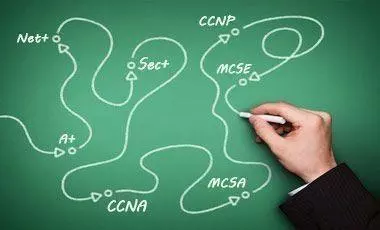Business and education leaders share tips and tricks for overcoming the challenges of distance learning and getting the most value from your online education.

For many of us, the global coronavirus pandemic has made in-person learning a temporary impossibility, but even with the promise of a vaccine, the shift toward learning online is likely to be a permanent trend.
Beyond its current expedience, there are many advantages to pursuing a training or degree program online, including the ability to study at your own pace and schedule, practicing self-motivation, gaining expertise in the increasingly valuable array of digital collaboration tools, and saving money versus traditional classroom programs.
However, online learning, be it in front of your computer or on a mobile device, presents numerous challenges, from the lack of interaction with fellow students, to potential struggles with motivation, concentration, and time management.
For a deeper look at the challenges of distance learning and how to conquer them, we asked industry experts in business, education and technology for their best tips and tricks for online learning. Here’s what they had to say.









